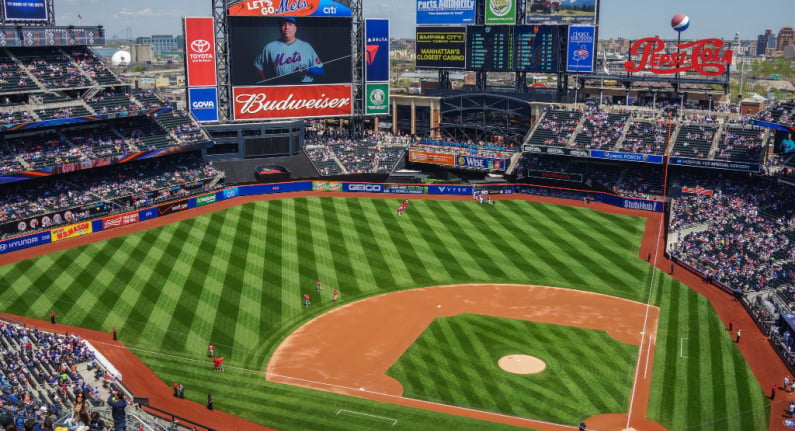Pushing the envelope
New York Mets owner Steve Cohen’s plan to bring a casino near Citi Field could be foiled by a small legal stipulation.
both state law and the Mets’ agreement will be major roadblocks
Cohen has already spent six figures lobbying officials as part of his push to build a nearby gaming center. However, both state law and the Mets’ agreement will be major roadblocks, according to The City.
New York’s National League baseball franchise will need to figure out how to circumvent rules on parking spaces and building on park land. If they cannot, the dreams of building a new casino could perish.
The New York Mets, agreements, and precedent
Cohen’s dream of launching a gambling venue coalesced after Governor Kathy Hochul proposed creating three more casino licenses.
The Mets’ owner has been targeting the Willets Point neighborhood as the center for the proposed business. Times Square, Hudson Yards, and Coney Island have all been considered by other developers as well.
Cohen was also pitching the idea of a casino near the ballpark as early as January, according to The City. However, his idea of bridging Willets Point with the ballpark by putting the facility in the middle of the team’s parking lot could be overridden legally.
the “public trust doctrine,” which bans private developers from building on public land
Building on parking lots would violate the “public trust doctrine,” which bans private developers from building on public land. State legislators would only allow construction to continue if they vote to override the rule.
Lucky for Mets fans and gamblers alike, the organization has a history of wriggling around legal pitfalls. In the early 1960s, the team’s former stomping ground, Shea Stadium, was built on land owned by the city Department of Parks and Recreation at Flushing Meadows Corona Park.
However, the Mets’ 2017 attempt to build a mall overtop the parking lot failed. The State Court of Appeals dealt the fatal blow, citing the public trust doctrine as justification.
Legality and feasibility
The public trust doctrine is not the only roadblock preventing the Mets’ development of a casino. Any building on the parking lot would reduce the number of spaces, which would slow the team’s repayment of hundreds of millions of dollars in municipal bonds, which are tied to parking revenue.
People with knowledge of the situation say that any changes to the parking lot would demand amendments to the financing deals, according to The City. The team would also seemingly be forced into building parking decks to compensate for the lost space.
QBC agreed to maintain at least a dozen parking lots around the stadium
Queens Ballpark Company LLC, the official owner of the Mets and Citi Field, leases the land from the city. Per a deal made by former owner Fred Wilpon, QBC agreed to maintain at least a dozen parking lots around the stadium while receiving roughly $650m in bond financing, according to the city’s Economic Development Corporation.
A 2017 audit stated that the team pays its base rent based on a formula that tracks parking and non-parking revenue against expected revenue.
A spokesperson representing Cohen said that he is still weighing his options on the matter.
“Steve views owning the Mets as a civic responsibility, and has made investments in the team, the ballpark and the community his number one priority,” Tiffany Galvin-Cohen, no relation to the Mets owner, told The City in a statement. “Steve is continuing to engage and listen to stakeholders. Any strategic vision for the area will aim to help revitalize the neighborhood and improve the experience for Mets fans.”
In the meantime, Cohen has been gearing up for a huge developmental push. Affiliates at his financial firm Point72 created a limited-liability company called New Green Willets.
Since forming, New Green Willets has been lobbying lawmakers and pledging money for development in Willets Point.
The neighborhood has 23 acres of publicly-owned land, currently undergoing a thorough makeover, as well as 40 acres of private land. If the owner wants to buy private, he is expected to have to wait a few years as environmental standards are met.
